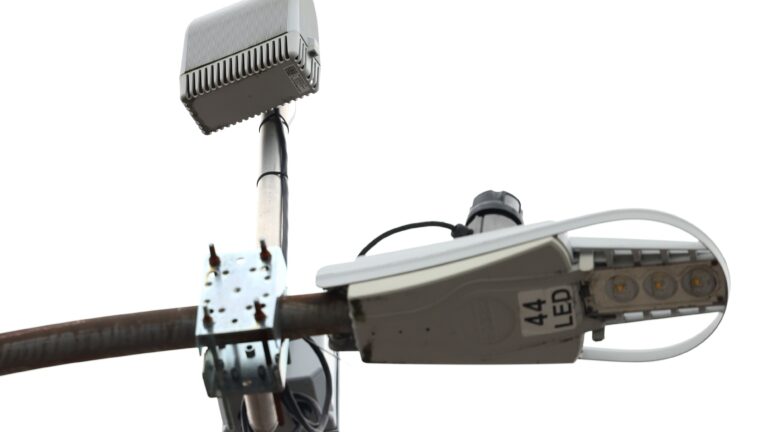Local news
The company behind the controversial gunshot detection technology ShotSpotter refuted claims made by several Massachusetts lawmakers in a letter to the Department of Homeland Security (DHS) last month, saying they used “selected data” and “recycled falsehoods” in calling for a federal investigation into the technology.
The company's response is directed at 4 lawmakers, including Senators Ed Markey and Elizabeth Warren and Representative Ayanna Pressley. The 4 submitted a request to DHS in May to analyze the technology, saying ShotSpotter contributes to excessive police presence in minority communities and may very well be a violation of the Civil Rights Act of 1964.
“With all due respect, your letter – which we first learned about from the media – is based on select news reports and studies that have been shown to be false, incomplete or unreliable,” said the letter, signed by Ralph Clark, president and CEO of SoundThinking.
Clark emphasizes in his letter that ShotSpotter, which relies on acoustic sensors to detect gunshots, is accurate and effective and helps “save lives, locate suspects and collect important evidence.”
“ShotSpotter works. ShotSpotter saves lives. And ShotSpotter does both while complying with Title VI of the Civil Rights Act of 1964,” the letter said.
According to SoundThinking, the technology is supported by leaders of minority communities
According to SoundThinking, the technology is meant to assist police reply to shootings that will not be reported to police.
In the letter, SoundThinking responds to lawmakers' claims that ShotSpotter violates civil rights since it is mostly utilized in communities of color, saying that “elected officials from minority-majority communities have been among ShotSpotter's most vocal advocates.”
-
What is ShotSpotter? Controversial gunshot detection technology is increasingly under scrutiny
-
Markey and Warren sign letter calling on federal government to analyze gunshot detection technology they are saying could violate civil rights
“These geographic decisions are colorblind – they are based on empirical data,” Clark wrote. Sensors are being deployed in areas where gun violence is highest, SoundThinking says.
Clark quotes a study from Chicago that found that Hispanics and African Americans were more prone to support funding the technology than whites.
“Because communities of color have unfortunately long borne the brunt of gun violence, residents of these neighborhoods are among those who support the benefits of ShotSpotter,” Clark said.
Clark also responded to a ACLU study in a letter from lawmakers that showed Boston police found no evidence of gunfire in nearly 70 percent of ShotSpotter alerts. In addition to refuting claims that the system was once triggered by a piñata, Clark says Boston Mayor Michelle Wu supports the system.
“Wu 'strongly supported the police department's plans to continue using ShotSpotter technology.' She said it had resulted in 'countless lives being saved' in the city,” the letter said, citing a Article. “Mayor Wu goes one step further.[b]To[ed] Criticism that the firearms system was ineffective and racially biased was dismissed.[ying] The city's strategy of deploying them primarily in minority communities is consistent not only with data showing that gun violence is disproportionately common in these areas, but also with feedback from residents who often want faster police response and better monitoring.”
Wu's office did not immediately respond to a request for comment on its support of the system or to SoundThinking's letter.
The company stands behind the accuracy and effectiveness of ShotSpotter
The letter also addresses claims that the technology is inaccurate and labels loud noises – such as fireworks or car backfiring – as gunshots. A study by Brookings Institution A 2016 study found that only about 12 percent of firearm incidents resulted in a 911 call.
According to the letter, SoundThinking guarantees the cities it contracts a 90 percent accuracy rate, but has an actual accuracy rate of 97 percent, according to a Analysis by Edgeworth Economics.
Clark quotes a memo from Oakland, California, saying the city's police department credited ShotSpotter with the survival of several gunshot victims because police responded quickly to an alarm. Similar situations are being reported in cities in Illinois, Florida and South Carolina, according to the letter.
Suspects have also been arrested based on ShotSpotter alerts, Clark says in his letter, citing an incident in June in Roxbury, where police found bullet casings at the scene of an alert and linked them to a suspect.
Clark claims that the cities that have chosen not to renew their ShotSpotter contracts especially Chicagoare only a small handful of the more than 170 municipalities that have contracts with the company.
“The fact is that while 10 communities have chosen not to renew with us between 2023 and 2024 so far, 136 communities across the country have renewed in the last 12 months alone, and 25 of those customers have not only renewed but expanded their service areas,” the letter said.
Clark invited lawmakers to ShotSpotter's Incident Review Center in Washington, DC, so the company could give a “demonstration” of how the technology works.
What the legislators wrote in their letter
The legislators letter According to DHS, high error rates have been reported for the technology, citing data from Cambridge and Boston. A study by the Journal of Public Health It found that ShotSpotter had “no significant impact on the number of firearm-related homicides or on arrest outcomes.”
When lawmakers asked DHS to analyze possible civil rights violations, they expressed concern that almost all audio sensors were installed in minority communities, contributing to excessive police presence and disproportionate surveillance of those communities.
Pressley and Warren didn’t immediately reply to requests for comment. A spokesperson for Markey said the concerns raised within the letter were “well documented.”
“There are serious, well-documented concerns concerning the use of federal funds to support a technology that potentially contributes to unwarranted surveillance and excessive police presence of minority communities and violates civil rights law,” the spokesperson said in a statement to Boston.com. “We have asked the Department of Homeland Security to analyze the situation with ShotSpotter and look ahead to the department's response.”
image credit : www.boston.com

















Leave a Reply